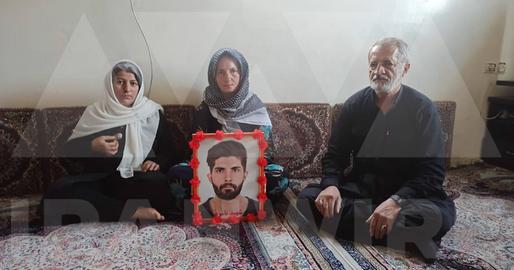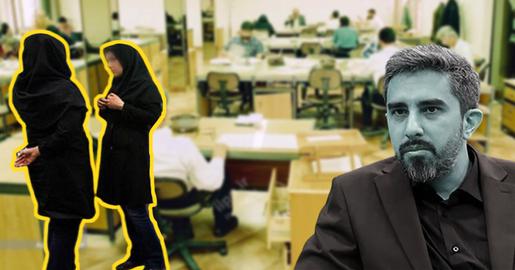"There’s no turning back" - This short sentence was part of a statement issued by students of Tehran’s University of Arts after the launch of a sit-in on June 14 protesting the implementation of mandatory hijab rules in the university.
In response, university guards and other security forces have threatened, beaten and arrested the protesting students. But in the face of their continued resistance, the methods used to suppress students and professors who support them have changed.
Amid a women's civil disobedience movement against the mandatory hijab law, MP Ali Motahari stated in an interview in March that the enforcement of the dress code in the streets should be of secondary importance.
However, he insisted that it should be strictly enforced in government offices and universities.
Meanwhile, it appeared that the presence of morality police in the streets has diminished, while restrictions within government offices and universities have increased.
Starting from mid-June, students at Tehran’s University of Arts started receiving text messages from the university's security team saying that wearing a headscarf is mandatory inside the premises.
The move led to a sit-in protest at the university but also triggered angry reactions among students in other universities and the general public.
A student at Tehran’s University of Arts tells IranWire that the authorities appear to have “backed down from enforcing the scarf requirement” for women.
"However, pressures are now being exerted on students in different ways,” he adds. “For instance, during the strike initiated by art university students to boycott classes, the university compelled the students to return to the classrooms by evicting them from the dormitory."
"The sensitivities surrounding hijab have even extended to the educational and artistic domains,” the student also says, citing the recent case where authorities at the University of Arts called off a student photography exhibition that would have featured images of women without a headscarf.
"Students in clothing and textile design were informed that women's faces should be removed from the designs and that their body’s skin should appear in a checkered form in two-dimensional designs. Additionally, the university authorities announced without any explanation that new students would no longer be admitted to the sculpture department. All of these instances can be attributed to the new strictures regarding hijab."
Another student described the pressure university professors are facing.
Professors who expressed their support for the sit-ins “were prohibited from entering the university, and their collaboration with the institution was terminated.” the student says. “There are also rumors about the potential replacement of certain professors, which is worrisome."
A former professor at the university says that, in the face of “the remarkable and enduring resistance demonstrated by the students of the University of Arts…the system resorted to another form of systematic violence, including withholding grades and removing students' names from exam sessions.”
"Apart from the collective violence inflicted by security forces, these administrative measures subject students to individual acts of violence. As a result, public awareness of these issues is limited."
Regarding the pressures exerted on university professors, the ex-professor explains: "Art university teachers are mainly adjunct instructors, meaning their collaboration with the university is governed by a contract that is typically renewed each semester or sometimes concludes at the end of the term.”
"In many cases, the motivation behind these collaborations goes beyond financial considerations. During the recent uprising, when several art professors joined the students' call for a strike, the university did not readily invite them to continue teaching. Instead, they were sacked from the university, and some of them were even summoned by security and law enforcement agencies. As many of these individuals are artists who require government permits to continue their activities outside the university, they face significant pressure."
Also, the ongoing confrontation between the authorities and these specialized professors has led to a decline in the quality of education in various art workshops.
The ex-university professor explains why Tehran’s University of Arts has emerged as a focal point of protests and student resistance: "In the field of arts, students engage in a substantial amount of practical work, which fosters their familiarity with collaborative work and interaction with their peers. These students have developed a deep understanding of working in groups through repeated practice. Moreover, throughout their lives, they have consistently faced opposition from both within and outside the university, which often failed to acknowledge their creative endeavors.”
This experience has “nurtured their ability to form support networks,” the former professor concludes.



























comments